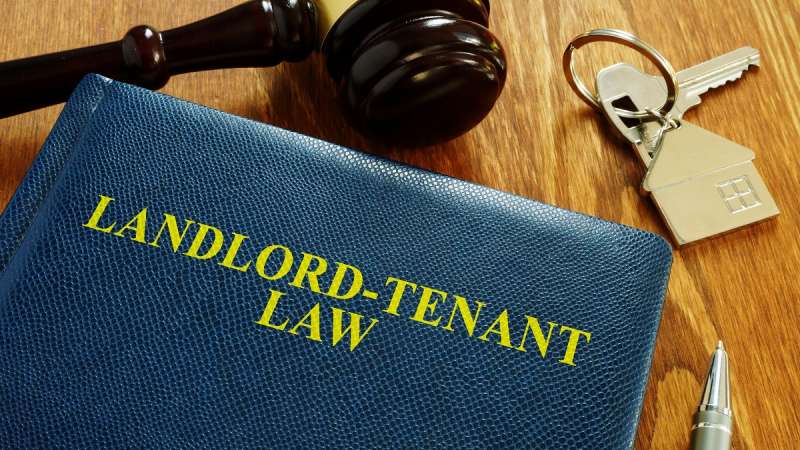Our Break Notice Service
A break notice in a commercial lease is a notice which either or sometimes both a landlord or tenant can serve on the other to terminate the lease before the contractual expiry date under the lease.
There needs to be a contractual right in then commercial lease agreement to terminate the lease before the expiry date.
The contractual right can be a tenant break right, a landlord break right, or a mutual break right (with both parties having the ability to terminate the lease early).
Where a commercial landlord has the benefit of a break right they should also bear in mind that they will also have to serve statutory notices to terminate if the lease is a “protected tenancy” for the purposes of the Landlord and Tenant Act 1954.
The break provisions in the commercial lease usually state that the service of a break notice will only be effective if various conditions are met.

The conditions include:
- How the break notice is to be served. Usually, break notices must be in writing – an email will not be sufficient. Leases also usually state that they must be sent to the recipient by a certain method (such as special or recorded delivery).
- Where the break notice is to be sent. This is often the recipient’s last known place of business, but the commercial lease may make other specifications.
- How much notice the break notice must give. For example, the break notice may only be effective if it is given a certain number of months before the break date. The notice period should take into account the time required to ensure that the notice is “deemed served” on the recipient.
- Payments which must be made. The lease may require all rents (and in some cases insurance, service charges and other payments) to have been made for the break to be valid.
- Other covenants must be complied with. Some break provisions state that to be valid all of the covenants in the lease must also be complied with. Where there are covenants to repair or maintain the premises, this type of condition may be very difficult to comply with.
If the conditions are not complied with, the break notice will not be valid (and the lease will continue for the remainder of the term).
A tenant may consider exercising a break clause to create leverage and agree to more favourable terms under a new lease.
However, tenants must bear in mind that once a break notice has been served it cannot be withdrawn – a tenant must therefore be prepared to vacate the premises by the break date in circumstances where a new lease has not been agreed and completed by the break date.
Why Work With Our Property Litigation Team
- Our property litigation lawyers have been ranked as a top-tier law firm by the Legal 500 for the last seven years.
- You will have access to more than 30 property experts across the Myerson Property Group, including commercial property, construction, residential property conveyancing and development.
- You will receive city-quality commercial property legal advice at regional prices.
- We provide a partner-led service to ensure you receive the best legal advice and commercially-minded support.
- Our property litigation solicitors compromise a large team which is capable of meeting your deadlines.
- We understand that each transaction is bespoke to your individual circumstances and that you need support from a property lawyer who is experienced in dealing with a wide variety of clients and types of work.
- We are a full-service law firm operating from a one-site office, which means our teams communicate effectively and efficiently.
- We use the latest technology to ensure that we are working as efficiently as possible and that geographical distance is no bar to us from providing excellent client service.
- We were the winners of ‘Property Team of the Year 2021’ at the Manchester Legal Awards.
- We provide free newsletters and webinars to all our clients to keep you up to date with the real estate sector and changes in the law. Watch our latest property update webinar here.
- Take a look at the Myerson Promise for further benefits of working with us here.
How We Can Help with Break Notices
Myerson Solicitors' Break Notice experts can help with the following:
- Advising commercial landlords and tenants on the validity of a break notice;
- Preparing and serving a break notice on behalf of commercial landlords or commercial tenants;
- Advising on any conditions attached to a break clause and how to comply with them; and
- Issuing proceedings should there be a dispute regarding the validity of a break notice or compliance with the break conditions.
Break Notice Case Studies
Akzo Nobel, Imperial Chemical Industries and Dulux Decorator Centres
Client Intro: Akzo Nobel, Imperial Chemical Industries and Dulux Decorator Centres
Our client has a multimillion-pound rental portfolio across England and Wales
Case Overview:
We regularly advise our client in relation to the management of their commercial property portfolio. This includes lease renewals, dilapidations claims, landlord/tenant covenants, rent reviews and break rights.
Laura Pile, a Partner in the Property Litigation team said this type of work demonstrates our capabilities in commercial portfolio management for blue chip corporations.
Monckton Properties Limited
Client Intro: Monckton Properties Limited
Our client is a landlord of a number of commercial properties.
Case Overview:
Our client is the landlord of a commercial property in Knutsford Cheshire. The property was let to Tesla Motors Limited who purported to exercise a break option contained in the lease.
The tenant failed to adhere to the conditions of the break so our client issued proceedings for a declaration that the lease is subsisting and a monetary claim for sums due and owing to them. The matter was settled fairly early on in the litigation and it was a good result for our client.
Dulux Decorator Centres
Client Intro: Dulux Decorator Centres
Our client is the tenant of a significant number of commercial properties.
Case Overview:
Our client is the tenant of a property in Ealing, Middlesex. They had a break option in their lease that they wanted to exercise as they had found an alternative unit elsewhere to move to. We had to prepare and serve the break notice on the landlord, who was in the Seychelles. We also advised our client on the break conditions.
Rhode Island Coffee Limited
Client Intro: Rhode Island Coffee Limited
Our client is the tenant of a commercial property that it occupies as a coffee house.
Case Overview:
Our client has a lease of a commercial property that it uses to run its business, a coffee house. Our client wanted to bring the lease to an end early by exercising the break option. We drafted and served the break notice.
Testimonials
FAQ - Tenants
What is a break clause?
A break clause is a contractual right allowing one (or sometimes both) parties under the lease to bring the lease to an end before the contractual expiry date.
How do I serve a break notice?
There are usually “notice” provisions in a lease that will set out how the break notice must be served.
The break notice must be served exactly as required under these provisions – if it is not, it may be ineffective.
The break clause will usually need to be served in writing. Service by email will be insufficient unless the lease specifically states that it is allowed.
Where should I send the break notice?
The commercial lease will give information in the “notice” provisions as to where the break notice should be sent. Usually, the break notice should be sent to the last known place of business for the recipient, but this is not always the case.
Best practice is to check the landlord’s registered office address where the notice is being served on a company, but the notice provisions should be checked carefully as they may specify different requirements.
If the break clause is served on the wrong entity or at the wrong address it will be invalid, and the commercial lease will continue for the remainder of the term.
How much notice do you need to give for a break clause?
The break clause will state how much notice is required.
When calculating the last day for service of the break notice the tenant will need to take into account when the notice will be “deemed” to be served under the notice provisions under the lease.
What happens if a break notice is not given in time?
If the break notice is not given in time, the break right will not be effective, and the commercial lease will continue for the remainder of the term.
Do I have to do anything else when I have served the notice?
The break clause will specify whether the right to break is conditional on anything else other than serving the notice. For example, payment of rent and vacant possession.
Some break clauses state that the tenant must have paid all rent due under the lease by the break date or may state that the break is conditional on compliance with other covenants in the lease.
If these conditions do not comply, the break notice will not be effective and the lease will continue for the remainder of the term.
Tenants should be wary of “material compliance” conditions as the break will only be effective if the tenant is not in breach of any other lease provisions (including the obligation to repair).
Can I withdraw a break notice once it is served?
Once a break notice is served it cannot be withdrawn.
Therefore, if a tenant is serving a break notice to put pressure on a landlord to negotiate terms for a new lease, they should be aware that if terms cannot be agreed they will be required to vacate the premises by the break date.
This applies even if the tenant fails to comply with the break conditions – as many leases allow the landlord to waive compliance with the conditions.
What happens if the break notice is not correctly served or I do not comply with the conditions?
The effect if the break notice is incorrectly served (this includes serving it at the wrong address or on the wrong entity) or you fail to comply with any conditions is that the lease will continue.
You would, therefore, remain liable to observe and perform the obligations and covenants contained within the commercial lease.
What if I fail to give vacant possession of the property by the break date?
One of the most common conditions of the break clause is to provide vacant possession.
Vacant possession generally refers to an obligation to ensure that the property is in a state fit to be occupied at a given time. Therefore, if there are a significant number of possessions in the property, this could prevent vacant possession being given. This may mean that the conditions have not been complied with and the break being ineffective.
If you have any concerns about how to provide vacant possession then we can provide you with further information.
What happens if I do not serve the break notice by the date given in the lease?
The break clause will often set out a “break date”. This is the date on which the lease will terminate if the notice is properly served.
Often, the break clause will stipulate that the notice must be served in writing within a certain period before the break date (i.e. not less than six months before the break date).
If the notice is not deemed to be served by this date, the effect is that you will have missed your opportunity to terminate the lease early.
The commercial lease will, therefore, continue either until the next break date (if there is one and you comply the conditions of the break notice and serve the relevant notice) or until the expiry of the term.
FAQs - Landlords
Can a landlord serve a break notice?
Leases can contain tenant break clauses, landlord break clauses or mutual break clauses, depending on what has been agreed between the parties.
The points set out above in relation to service of the notice apply to the service of landlord’s break notices.
However, if a lease is a “protected tenancy” for the purposes of the Landlord and Tenant Act 1954 (“the Act”), a landlord will also need to serve statutory notices to bring the lease to an end and will need to rely upon one of the grounds set out in the Act. E.g. redevelopment.
Should I acknowledge receipt of a break notice served by the tenant?
There is no obligation on a landlord to acknowledge receipt of a break notice.
If a landlord does wish to acknowledge receipt, they must ensure that they state that such acknowledgement is without prejudice to the validity of the break clause.
Is there anything I need to be aware of if the break right is conditional?
If the break is conditional a landlord should be careful not to do anything which may constitute the waiving of compliance with the break conditions.
Has the tenant correctly served the break notice?
The requirements for service of the break notice will be contained within the commercial lease.
The obligations must be carefully checked to ensure compliance.
The lease will provide details of how the break notice must be sent to ensure effective service i.e. there may be a requirement to send the notice by registered post or by personal service.
What happens if the tenant does not served the break notice by the date given in the lease?
The break clause will often set out a “break date”. This is the date on which the lease will terminate if the notice is properly served.
Often, the break clause will stipulate that the notice must be served by a certain period before the break date (i.e. not less than six months before the break date).
If the notice is not deemed to be served by this date, the effect will be that the tenant will have missed their opportunity to terminate the lease early.
The lease will, therefore, continue either until the next break date, if the tenant serves a new break notice and complies with the conditions or until the expiry of the term.
What happens if the break notice is not correctly served or the tenant fails to comply with the conditions?
The effect if the break notice is incorrectly served, which includes serving it at the wrong address or wrong entity, or the tenant failing to comply with any pre or post-termination conditions, is that the lease will continue.
The commercial tenant would remain liable to observe and perform the obligations and covenants contained within the lease, as well as assume the associated liabilities placed upon them by virtue of the lease.
What if the tenant fails to give vacant possession of the property by the break date?
One of the most common conditions of the break clause is to provide vacant possession. Irrespective of whether the break notice is served correctly, the tenant will need to ensure that you provide vacant possession of the property by the break date.
Vacant possession generally refers to the tenant’s obligation to ensure that the property is in a state fit to be occupied at a given time.
If there are a significant number of possessions in the property, this could prevent vacant possession being given. This may mean that the tenant has not complied with the conditions and the break notice would be rendered ineffective.
The lease would continue and the tenant would remain liable to observe and perform the obligations and covenants contained within the lease as well as assume the associated liabilities placed upon them by virtue of the lease.
Meet Our Property Litigation Solicitors
Home-grown or recruited from national, regional or City firms. Our property litigation lawyers are experts in their fields and respected by their peers.
Contact Our Experts
You can contact our lawyers below if you have any more questions or want more information:







